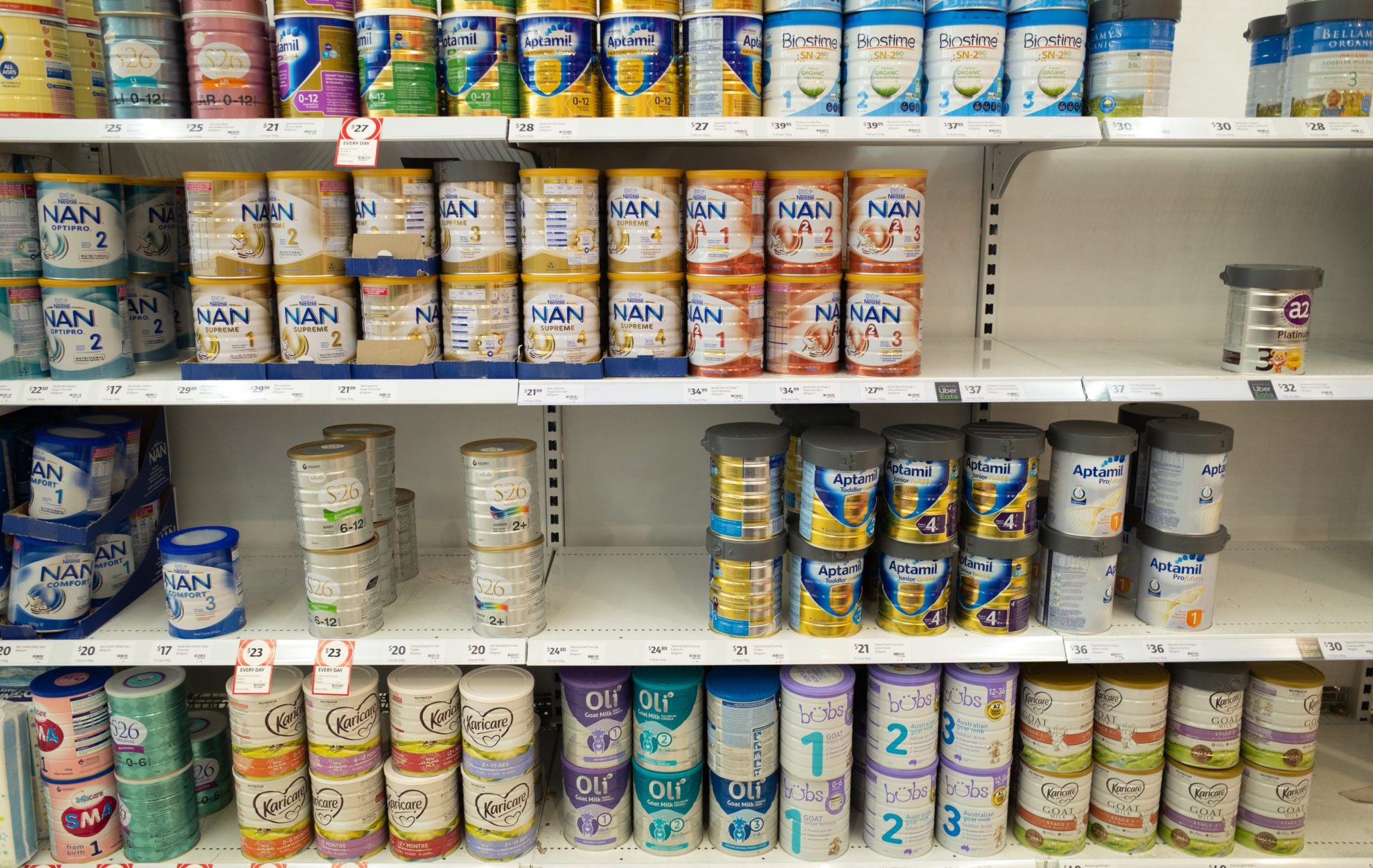Formula for Failure

Four companies control nearly 90 percent of the infant formula market in the United States. Abbott is one of them.
Back in February, the Food and Drug Administration issued a recall on Abbott’s product, citing infant illnesses; the same month, the agency discovered a deadly bacteria, cronobacter, at the Abbott plant in Sturgis, Michigan. Several infants who had consumed formula manufactured at the Sturgis plant had become sick or died. Naturally, the effects on the national supply were felt quickly.
Yet Abbott claims there is no evidence linking the formula to these infants’ deaths. The U.S. Department of Justice filed a complaint and consent decree against Abbott and three of its executives, saying Abbott staff “have been unwilling or unable to implement sustainable corrective actions to ensure the safety and quality of food manufactured for infants.”
The resulting formula shortage has been too much to bear, nevertheless. The FDA has reached an agreement with Abbott to allow the company to start up production again in two weeks, on the condition that it overhaul its safety protocols and procedures. New products are estimated to reach store shelves by late June or early July. In the meantime, the FDA will streamline its review process for imported formula to make it easier for foreign manufacturers to sell to the U.S., and in a somewhat amusing return to the era of wet nurses, milk banks have gained popularity as another alternative.
The problem is, of course, that like both foreign formulas and domestically manufactured ones, the best natural sustenance for a child also cannot be turned on and off like a switch. While some have asked the obvious question online (Why not breastfeed?) it has been met with the obvious answer. Still, it is worth thinking about how we’ve managed to create a shortage that does not exist as such in nature—in other words, why so many women are dependent on formula, which I would suggest has at least as much to do with culture as it does the real challenges of breastfeeding (and as a first time mom mere weeks from entering the fray, I have learned from mentors that there are plenty).
It would be practically impossible, for example, for a woman to return to an office full-time and also breastfeed her child without some sort of formula supplement. Nature’s supply-and-demand cycle requires she be with her child (or pump) frequently throughout the day, depending on the baby’s stage of development, something even the best office environment would be hard pressed to accommodate for. Environmental factors, too, like stress, malnutrition, dehydration, and fatigue, can also impact a mother’s supply, whatever her intentions of being both full-time feeder and full-time girl boss. Not to mention those mothers who would do anything to stay home but cannot, either because their husbands do not make enough to afford them to slow or stop work, or because they do not have husbands.
What is to be done? Several ideas come to mind, of which paid family leave, remote work, and paying fathers a family wage are only a few. Repairing the corrupt state incentives that have led to our high divorce and single-motherhood rates would be another idea.
The problem of starving children and helpless mothers is nothing new; the solutions, likewise, are hardly revolutionary.
Comments